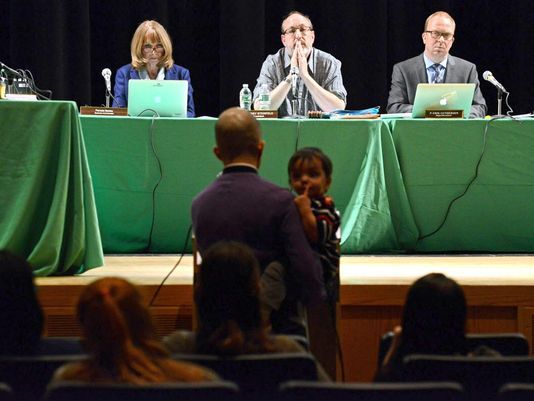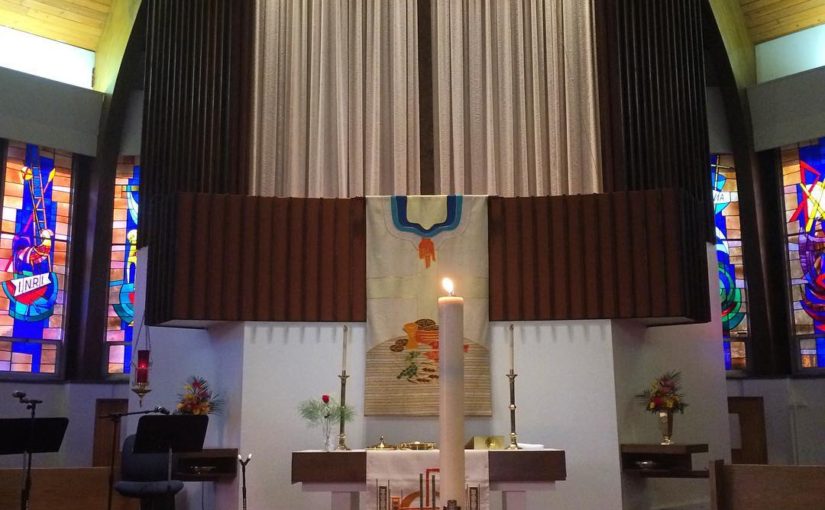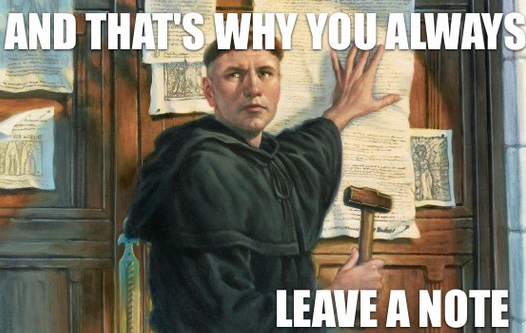The Gospel Reading is John 8:31-36.
“The truth shall set you free” is such a great line and is one of many great lines from the gospel according to John. This line is also beautiful and why we hear this reading every year at this time. As Lutheran Christians, the last Sunday in October is a time when we dress up the church in red and celebrate. But today is more than just the day before Halloween. The last Sunday in October is Reformation Sunday. We remember how, on October 31, a monk posted on a church door 95 thoughts about God and the church. We remember and celebrate all our faith-filled fore bearers who lived their faith out loud and passed this faith down to us. This October 31 will mark the beginning of our 500th year as a community of faith living called Lutheran. Today is a day when we remember how the past formed us and how faith is transforming us and our world. Reformation Sunday is always a Sunday looking into the future and seeing where God is taking us next. Reformation is about relationship.
Relationship is at the heart of today’s reading from John and we see that relationship when we leave these words in context. When we take verses of scripture out of context, we miss what Jesus is saying. Today’s reading isn’t about freedom as we understand it (personal liberty, autonomy, and the ability to make our own choices). Jesus is speaking during a conversation with people who followed him and then stopped. Something caused these early followers of Jesus to not buy into what Jesus was doing and saying. These early followers stopped trusting in Jesus’ identity and mission. Jesus uses this opportunity to expand our definition of faith. Faith is more than agreeing to a series of propositions or ideas. Faith is more than an intellectual experience and does not resemble the tests we take in school. Faith is, in the words of this passage, about a relationship with God. In the words of Gilberto Ruiz, professor at Saint Anselm College, “the verb translated in the New Revised Standard Version as ‘continue’ in John 8:31 is meno, a key term in John’s Gospel that is often translated as ‘remain’ or ‘abide’ and points to the permanent or enduring nature of the relationship between Jesus and the believer…by taking into consideration that Jesus’ language focuses on ‘remaining’ and that his audience is a group whose faith in him did not ‘remain,’ we see that this passage presents faith as a continuing relationship. The true disciple ‘remains’ in a faith relationship with Jesus, and it is this disciple who will be set free by knowing the truth revealed by Jesus.” Faith is more than just saying yes to God; faith is walking with Jesus over the long haul. And that’s not easy.
Relationships are never easy. Relationships take time. They require compromise, conversation, engagement, give, and take. There are times when our relationships are full of joy and other times when we are angry or sad. And our relationship with God is filled with the same kind of feelings and experiences. Sometimes our relationship with God feels completely unlike what we expect faith to be. But our faith with God doesn’t depend on what we feel or think. Our faith is a gift from God. God doesn’t wait for us to reach out; God comes to us instead. God starts our relationship through the gifts of baptism, parents, communities of faith, and the Holy Spirit herself. Faith is about what happened yesterday, who we are today, and where we are going in the future. Faith is a relationship and the Reformation is celebrating a God who starts that relationship so we can live into a future God is already preparing.
Each week, I write a reflection on one of our scripture readings for the week. This is from Christ Lutheran Church’s Worship Bulletin for 10/30/2016.



